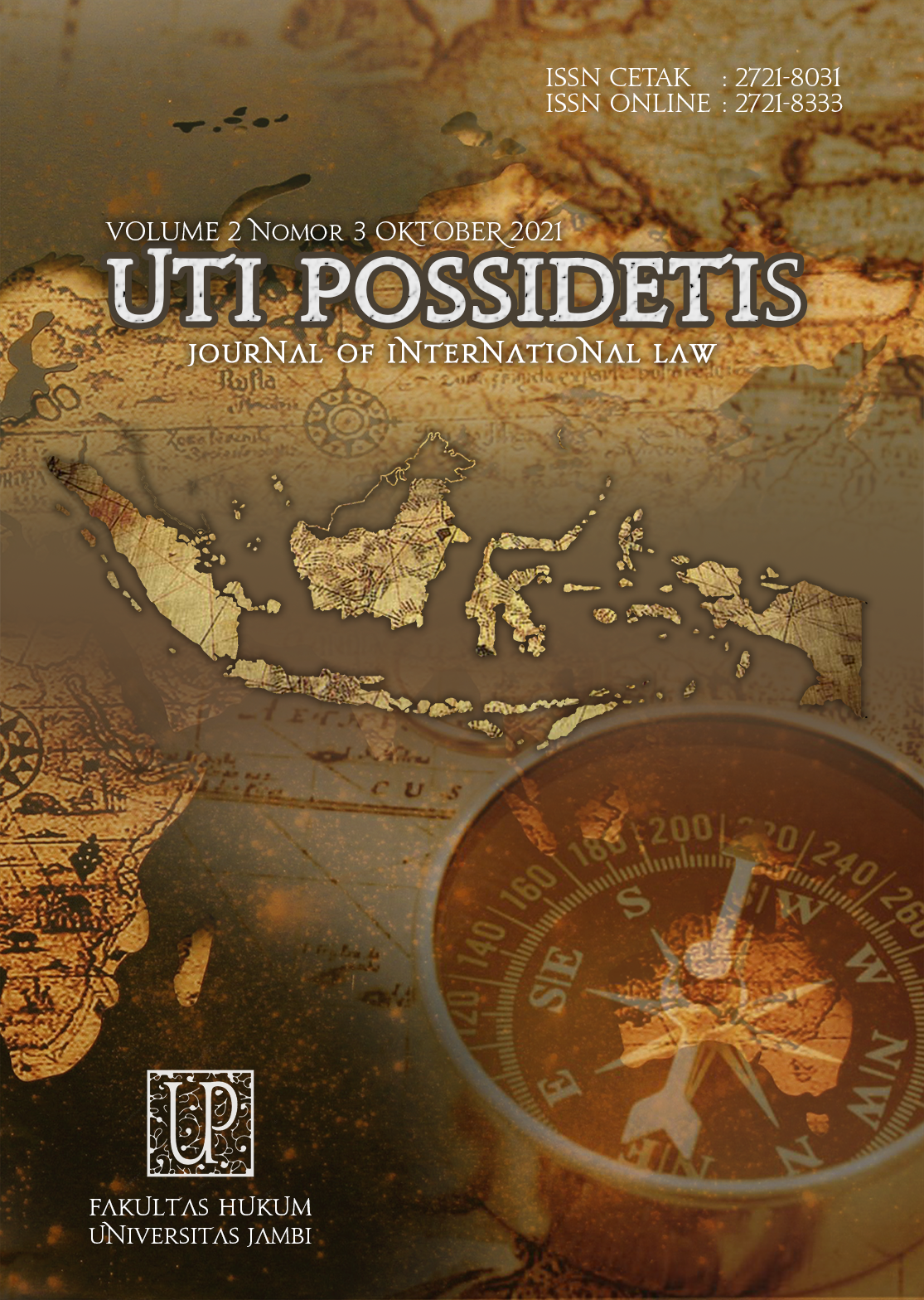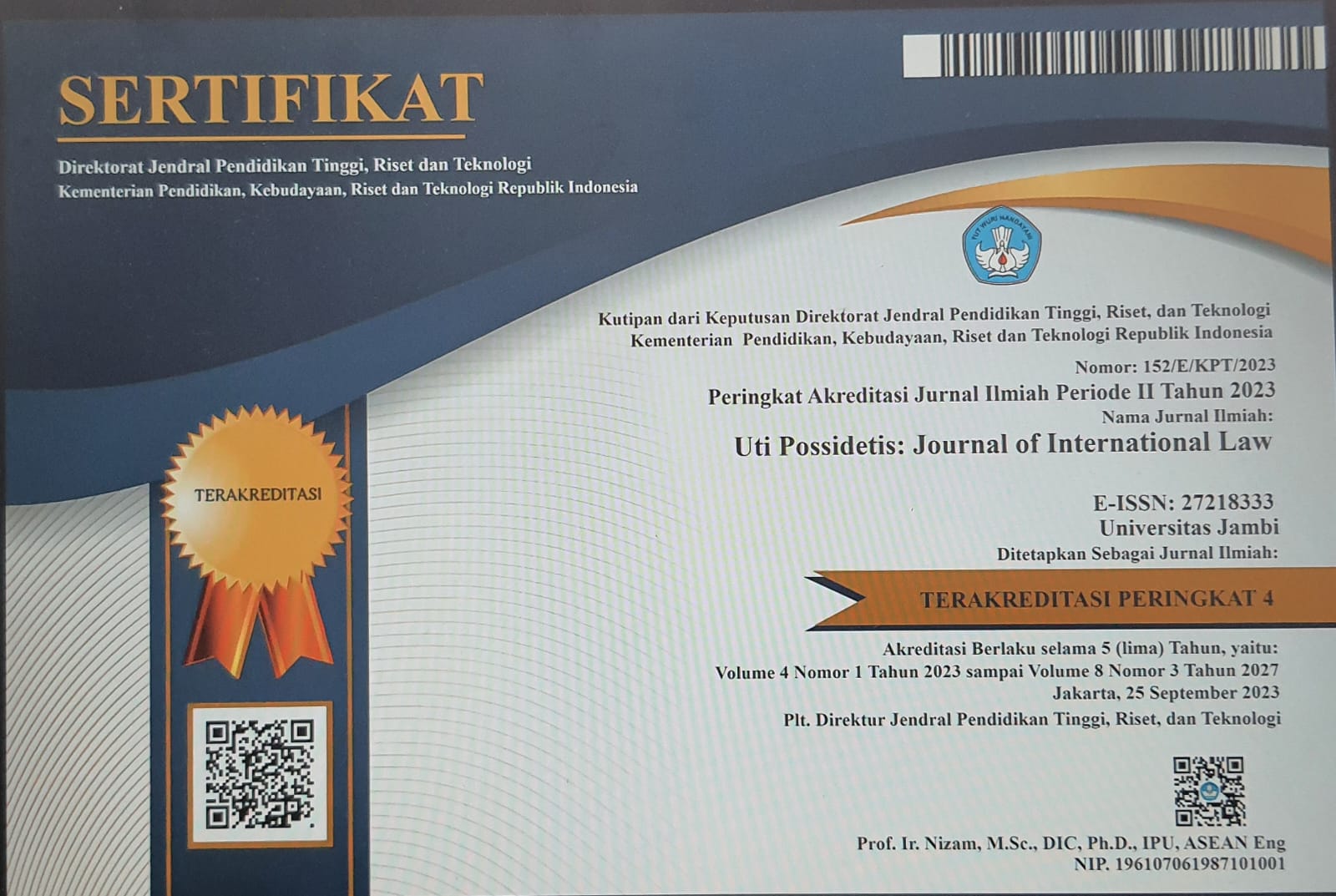Penanggalan Kekebalan Pejabat Diplomatik: Kebijakan Hukum Negara Pengirim atau Negara Penerima?
DOI:
https://doi.org/10.22437/up.v2i3.13147Keywords:
diplomatic agent, immunity waiver, sending stateAbstract
Article 29 of the 1961 Vienna Convention stipulates that diplomatic officers are inviolable, may not be arrested or detained. They must be treated with respect and receiving countries must take appropriate steps to prevent attacks on their persons, freedoms and dignity. So the consequence arising from the inviolability of a diplomatic official is immunity from the jurisdiction of the receiving country. However, the jurisdictional immunity possessed by diplomatic officials can be waived by the sending country as contained in Article 32 of the 1961 Vienna Convention. This article aims to find out how the mechanism in the issuance of immunity (immunity waiver) by the sending country against diplomatic officials. The results of the study show that the subject who has the right to waive the immunity of diplomatic officials who commit violations in the receiving country is the sending country. This waiver of immunity can be carried out after an application is submitted by the receiving country and submitted by the Head of State, Minister of Foreign Affairs or the Head of the Diplomatic Representative of the sending country.
Downloads
References
Referensi
Artikel/Jurnal/Karya Ilmiah
Dammen, Nicholas Tandi. “Kewenangan Perwakilan RI Di Luar Negeriâ€. Jurnal Hukum Internasional, Vol. 2 No. 4, 2005.
Goldenberg’, Rina. “Abuse of Diplomatic Immunity: Is the Government doing enough?â€, Journal of International and Comparative Law, Vol. 1, 1995.
Nasution, Hanna Safira. “Penyalahgunaan Wewenang Oleh Pejabat Diplomatik Dalam Melaksanakan Tugas Diplomatiknya Ditinjau Dari Aspek Hukum Internasionalâ€, Jurnal Ilmu Hukum, 2017.
Ross, Mitchell S. “Rethinking Diplomatic Immunity: A Review of Remedial Approaches to Address of Diplomatic Privileges and Immunitiesâ€, American University International Law Review, Vol. 4, 2011.
Roye, Paul F. “Reforming the Laws and Practice of Diplomatic Immunityâ€, University of Michigan Journal of Law Reform, Vol. 12, 1978.
Wartini, Sri. “Efektifitas Penanggalan Kekebalan Diplomatik Sebagai Bentuk Perlindungan Negara Penerimaâ€, Jurnal Hukum dan Keadilan, Vol. 2., No. 1, 1999.
Buku
Kusumaatmadja, Mochtar dan R. Agoes, Etty. Pengantar Hukum Internasional. Edisi Ke-2. Bandung: PT. Alumni. 2003.
Mauna, Boer. Hukum Internasional Pengertian Peranan dan Fungsi dalam Era Dinamika Global, Bandung: PT. Alumni. 2018.
Suryokusumo, Sumaryo. Hukum Diplomatik Dan Konsuler Jilid I. Jakarta: PT. Tatanusa. 2013.
Suryokusumo, Sumaryo. Hukum Diplomatik Dan Konsuler. Fakultas Hukum Universitas Gadjah Mada. Yogyakarta. 2007.
Suryono, Edy dan Arisoendha, Moenir. Hukum Diplomatik Kekebalan dan Keistimewaanya. Bandung: Angkasa. 1986.
Widodo. Hukum Kekebalan Diplomatik. Yogyakarta: CV Aswaja pressindo. 2009.
Instrumen Hukum
Vienna Convention on Diplomatic Relations 1961
Crimes Act New Zealand 1961
Website
United Nations Treaty Collection, dalam https://treaties.un.org/pages/ViewDetails.aspx?src=TREATY&mtdsg_no=III-3&chapter=3 diakses pada tanggal 11 Januari 2020.
Downloads
Published
How to Cite
Issue
Section
License
Copyright (c) 2021 Annisa Asfida Sari, Akbar Kurnia Putra

This work is licensed under a Creative Commons Attribution 4.0 International License.







